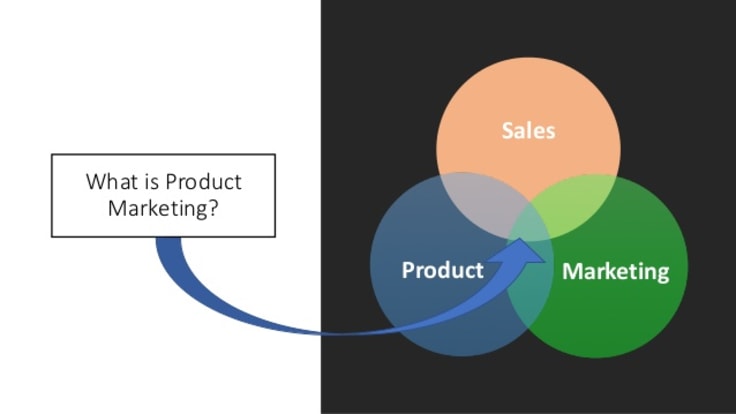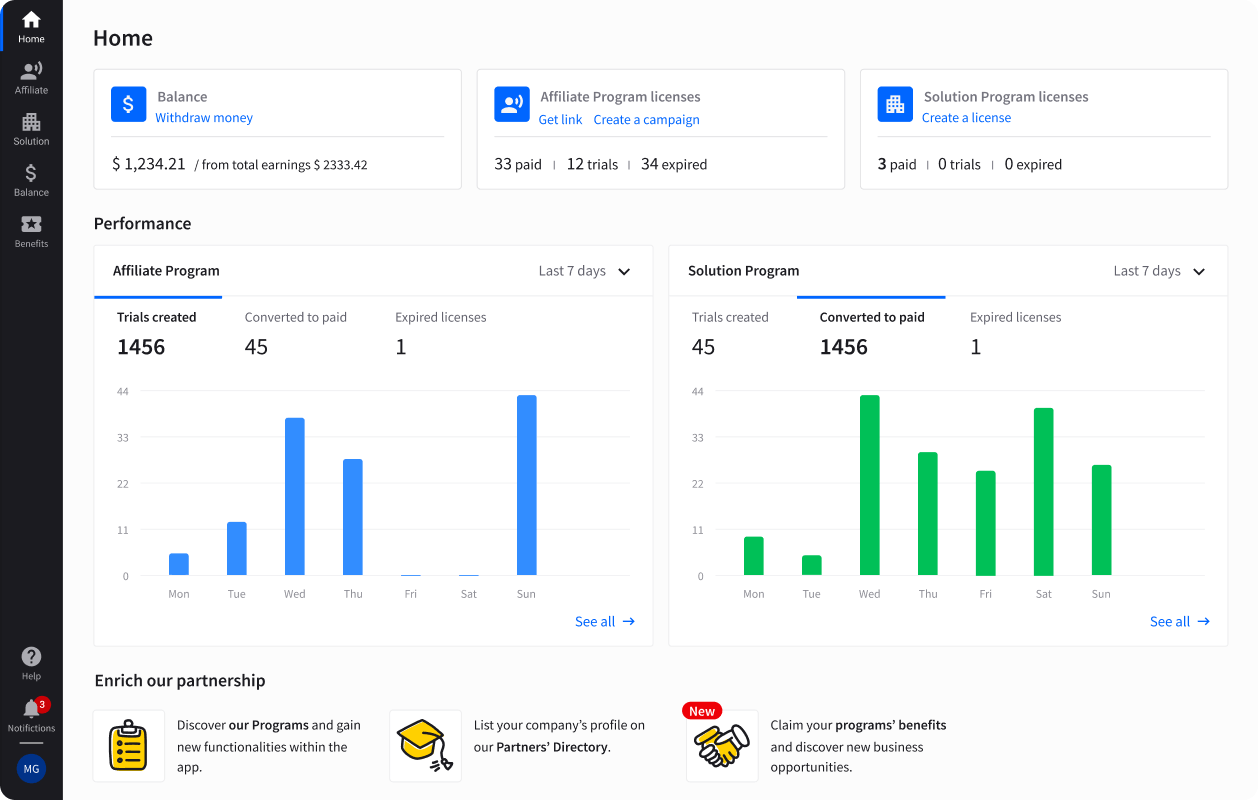Showing top 0 results 0 results found
Showing top 0 results 0 results found

More than 90% of startups fail. That’s a fact.
It may feel like you have it all figured out with your SaaS product-market fit. You have your team that is ready to tackle any issue, and your value proposition is on point. It still doesn’t mean that you’ll be able to make in the startup world.
Is there anything you can do about it? This is where product marketing may help you out.
In today’s post, I’ll write more about what this type of marketing really is and how it can help you make better product decisions. I’ll also list 5 traits of a successful product marketing marketer.
What is product marketing?
Let’s start with the basics.
Product marketing is the process of bringing the product to the market. This type of marketing has been more common in the SaaS world, but the increasing number of traditional companies start to embrace it as well.
What is product marketing so crucial for startups? Startups grow only when their teams think about their product holistically. Neil Patel explains it best when he writes:
The CEO thinks, “It’s my job to lead.” The CMO thinks, “It’s my job to market.” The lead developer thinks, “It’s my job to code.” But a startup can’t segment its responsibilities like that. Things are far more organic in a startup, meaning that roles and responsibilities will overlap. Small things can turn into large things.
People tend to associate product marketing with the product launch and all early phase activities.
Here goes the tricky part though.
Product marketing process doesn’t end at the pre-launch and launch stages. On the contrary, it’s an ongoing course of continuously promoting and shaping the product to meet the customers’ needs at all stages of its life cycle.
Now, let’s take a closer look at two different areas product marketing seems to be most confused with: online marketing and product management.
How is product marketing different from online marketing?
The main difference between product marketing and online marketing is the fact that the former goes across different strategic areas of the product. While online marketing focuses merely on promotional activities, product marketing cuts deeper than that. It zeroes in on the ways the customers use and move through the product. That’s why product marketers always have users and how they experience the product in mind.
What are the differences between product marketing and product management?
For most people, it seems like product management and product marketing are very similar areas. In fact - although they do overlap in a few different points - they tackle different issues within a product. Therefore, the roles of product manager vs. product marketer are not interchangeable at all.
Product managers focus on the operations of developing a product. They check what features need to be built by the engineering team, and why they should be added to the product. They also manage the building process. They work far more closely with the developers that product marketers will ever do.
What does a product marketing manager do?
Product marketing manager works at the intersection of product, sales, and marketing. Their role is to regularly check where does their company stand on the product-market fit axis.

Depending on your industry and the type of product you market, the exact responsibilities may change, but here’s what your typical day may consist of if you’re a product marketing manager:
- communicating product changes to your customers in an understandable way;
- developing a product strategy and keeping the balance between your team’s vision for the product and the needs of the customers;
- preparing the pricing strategy and deciding on your product’s positioning;
- going through a list of most requested features;
- conducting customers’ interviews that will help you see their motivation to use the product.
There are also some crucial questions you should know the answers to as a product marketing manager:
- How will this new feature influence the product’s growth?
- What are the primary product’s bottlenecks and customer pain-points?
- What would be the best way to launch new features?
These questions will not only help you effectively market the product but can also influence how it unwraps and give your users what they genuinely want and need.
5 skills every product marketing manager should have
So, what are the crucial traits that you should have as a product manager? I’ve listed these below:
1. Empathy & the ability to connect with customers on different levels
Empathy is an essential skill not only in the customer-facing roles, like support specialists, or customer advocates, but also whenever you’re working on something that will be later released to the public (be it an app, or a landing page).
While empathy may feel like a trait that one is either born with or does not have at all, it is also something that can be developed and nurtured over time.
Make sure you exactly know in what situations your users reach out for your product and how do they move through it. Contact your customers directly (via email or through a support center) to see what they struggle with. As Jared M. Spool writes in his ‘Fast Path to a Great UX — Increased Exposure Hours,’ the so-called ‘exposure hours’ are key to effective product development. From my perspective, they’re also crucial for finding ways to market the product.
2. Creativity & problem solving
As a product marketer, you may also face issues of various scope and difficulty. It may happen that throughout the day, you’ll need to review microcopy for a new feature, lead a remote one-on-one user testing session, and have a meeting with a product manager or a group of developers to discuss the results from in-person meeting with your customers.
Being a product marketing manager requires you to be as flexible as possible. One moment you may be writing copy, the next - talking technical issues with the engineers.

What you’ll also need is a growth mindset and the ability to see things from a broader perspective. In other words, you shouldn’t’ see product marketing as a series of unrelated tasks, but rather as an ever-evolving process that will help bring the real value to your users. Once you see things happening in your product from this angle, you will be able to see how they influence each other too.
3. Research & analytics skills
Live sessions are the most effective way to connect with the users and observe how they use your product, but they’re not always easiest to organize, especially for the partially or fully remote teams. That’s why as a product marketing manager, you’ll need to get familiar with research and analytics tools. The list of the most useful ones includes Mixpanel, Amplitude, and Google Analytics.
Knowing how to use the analytics tools is just step one though. The real skill comes with knowing how to interpret and what’s even more important, how to use the data you’ve collected using the apps to make product decisions. You need to learn how to look for patterns and roadblocks, especially those that may influence product growth in the longer term.
What’s important, you not only need to know what happens inside your product, but you should also be up to speed with what your competitors are currently working on. You should be also able to see if and how it should shape the positioning of your product on the market.
4. Marketing skills (including copywriting)
Although it may sound obvious, marketing skills should also be of your scope if you’re applying for product marketing manager jobs. Clear and effective copywriting techniques will be largely beneficial. Being a product marketer will undoubtedly involve explaining complicated technical terms and processes in words that can be easily understood by an average non-tech user.
You should not only be able to make the users understand your product. You should make them fall in love with it. Clear copy does not merely suffice in this situation. Your writing show them how it can bring real value to their daily activities.
Once again, is that something you can learn and improve over time? It most certainly is!
As I’ve mentioned before, seeing your product in a broader context and from a customer point of view makes all the difference. If you’re not sure how to start looking at what you do this, I highly recommend reading this short essay on ‘teaching a product to talk’ from Hubspot’s VP of Marketing Meghan Keaney Anderson. I am more than sure that once you make the switch, it will influence not only your way of marketing products but also how you write about them.
5. Strategic planning & business skills
Yes, knowing your business ABCs will be essential if you want to explore the world of product marketing. Once you’re in, make sure to find at least a few people that you look up to and learn from them. Connect with them and ask for advice. That’s how you’ll improve all necessary skills to make and what’s even more crucial, keep your product successful at all of its development stages.

I also highly recommend checking resources like Openview Labs where you’ll find hundreds of interviews with successful product marketers (and other product people too).
What you’ll also need to learn is how to prioritize your tasks from a business point of view. While being your customers’ advocate should always be on the top of your list, it may happen that you’ll need to put on hold or resign from introducing features that will not bring value to the majority of users. Again, that’s where tracking and analytics tools come in, helping you make the right decisions related to your most important metric (be it registrations or the number of monthly active users).
Over to you
That’s all for today! I’d love to hear if there are any essential skills you would add to the list above. If so, please add them in the comments below or ping me on Twitter.
Are your growing your own SaaS startup? Sign up for our Solution Partner Program and let’s check what we can work on together.
Become our partner
Build your business on excellent customer service products



